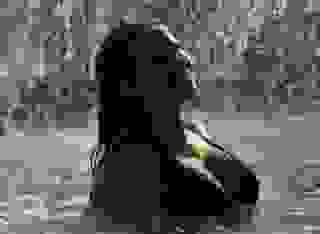Note: You can change font size, font face, and turn on dark mode by clicking the "A" icon tab in the Story Info Box.
You can temporarily switch back to a Classic Literotica® experience during our ongoing public Beta testing. Please consider leaving feedback on issues you experience or suggest improvements.
Click here"I don't trust people who smile all the time," the 300 pound politically connected stock broker said just before he downed another scotch and water.
Tanner smiled. "Gee, I never thought of it that way," he said to the hulk as he turned and walked away.
And looking back a few years later, that moment summed up his 8 month marriage to Sandra McClellan. He'd begun to really see through her a few months too late, and Tanner began to think of her father's bullshit as just a dodge for his own endless scams. Keep people off guard, never let them see the big picture -- never let 'em see you coming. And who knows, maybe it worked. It didn't take too long to see that her plan all along had been to file for a quickie divorce and fleece him for all he was worth. She was her father's daughter, after all...
Too bad he'd put most of his income in a trust, and so well beyond her grasp. Still, he'd bought her a house and sold the boat by then, so she got that much from him.
And yet it was about then that a couple of cutters in his group asked him about doing a volunteer stint with MSF in Ethiopia or Sudan later that year...
"Isn't that the French group?" he replied. "Doctors Without Borders?"
"Yup. Three or four of us go over every winter; we typically spend about a month there."
"What's it like?" Tanner asked. "Primitive, I'd guess?"
"You have the basics," Beth Gruber said, her matter-of-fact expression open and honest, "but if you get sent away from the main hospitals, living conditions can get pretty basic."
"What kinds of cases to you see?"
"'Bout the same as here. Hot bellies and lots of gunshot wounds."
"You mean...like street gangs?"
"Warlords and the usual cartels. Everything from drugs to spices."
"So...you mean like open warfare, right?"
"Not in the modern sense. No airstrikes, no napalm, none of that stuff. Small arms fire and land mines are the usual modes. Lot of kids caught in the crossfire, too, and lots of amputations from landmines."
"Sweet Jesus," Tanner muttered under his breath. "Sounds like a lot of broken hearts, if you ask me."
"It's worse when there's no one around to help," Gruber added, looking him over. "So, you tell me. What's worse, broken hearts—or the total despair of no medical care?"
"Is that why you do it?" he asked Gruber.
"Why I do it isn't really the question, Doug. You're pretty good at this stuff and your time would be appreciated, and that's really about all there is to it. The question is, to put it bluntly, are you in or not?"
He'd looked away then, but after a moment he nodded: "Let me look into it and I'll let you know."
"Why don't you join us for dinner? The four of us going this year are meeting up this Saturday at my place. Bring your questions and we'll hash 'em out, okay?"
+++++
Which was how Doug Tanner found himself at Washington Dulles International Airport two months later, in August, boarding an Ethiopian Airlines 787 Dreamliner bound for Addis Ababa, Ethiopia. Beth Gruber and Jenny Peterson, two surgeons from his practice, were flying over with him, but only Peterson was going with him all the way to the teaching hospital in Gondar, located in southwest Ethiopia. Gruber was headed to a refugee camp near the border between Eritrea and the Tigray region of northwest Ethiopia, and as this was an area of incipient guerrilla activity and ongoing political instability, only more experienced physicians were allowed in that region.
When their flight was called he walked down the Jetway behind Gruber and Peterson, queuing up just outside the forward door, and then he caught a glimpse of the the flight attendants. All black women. And as he'd never seen anything like that before it caught him off guard. And then, once he entered the cabin he looked into the cockpit—and saw two black men, and once again he felt a little flutter of disorientation...as in...'what the fuck am I doing here?'
He'd booked a ticket in business class, much to the disappointment of his traveling companions, and when his flight attendant brought him French Champagne he felt a little stir of resentment, like what the Hell is this African woman doing serving me—ME!—Champagne?
And then he thought of all the disparities he'd seen in the ER, the second rate care, the veiled racial disparities, and he held up that glass of Champagne and looked at it for the longest time before he finally broke down and took a sip. He turned to the window as the Boeing was pushed back from the gate and he saw his reflection in the plastic there so he studied the features in his mind's eye and compared them to what he really saw there.
'I'm just another racist,' he sighed inwardly, 'despite all my pretensions to the contrary.' He looked into his eyes, not at all liking what he saw but trying his hardest to accept this simple truth.
'Okay, so what do I do about it?' he asked himself as the Boeing turned onto the runway and began its sprint into the evening sky. And then he held his hands up and stared at his fingers for the longest time, knowing that whatever good might come from him would be delivered by these hands.
"Are you alright, sir?"
He turned and looked at his flight attendant and he nodded, then he smiled at the woman. "Yes, I think so. I was just lost in thought..."
"You look troubled," the woman added.
He sighed while he nodded once again. "I'm off to Gondar to work in the hospital there. It's my first time."
"Médecins Sans Frontières?" she asked.
"Yes, that's right."
"My brother is in medical school, in Paris," she said, smiling politely.
"Small world," Tanner sighed with a shrug.
She weighed his words against the measure of her own experience, though she smiled once again. "Let me know if I may bring you something?" she added as she turned and walked forward to the galley.
Flying from the sun now, darkness enveloped the Boeing as it streaked through the remains of the day, and all the while Doug Tanner wondered what revelations the next day would bring.
+++++
The jet touched down lightly and slowed in time to make the first turn out, and he was surprised once again by the terminal he saw as the jet taxied to the gate. Maybe he'd been expecting thatched roofs and dusty old Land Rovers waiting under shade trees in a sandy parking lot, but what he saw now was a modern airport that might have looked right at home in any large US city. Black glass and polished aluminum and a few dozen jumbo jets greeted him and yet one more time he was left to confront the reality of his skewed perceptions.
When he walked off the Boeing he smiled at his flight attendant yet was a little surprised at her reaction. She seemed almost annoyed, and he wondered if his doubts were really so readily apparent? Some people wore their racism on their sleeve, like right out there in the open, while others were more practiced at concealing such feelings of hate. Which one was he, he wondered?
He waited for Beth and Jenny outside the Jetway, then they walked down to customs together, and after they cleared, they collected their luggage before heading on to their connecting flights. It was only a 250 mile flight on to Gondar, while Beth had a 350 mile flight up to Aksum, near the border with Eritrea, but he was surprised when they learned they were all on the same outbound flight. He and Jenny would deplane in Gondar, while Beth would remain onboard for the last leg of the flight.
They boarded a new Dash-8 Q400 this time, and now he hardly gave the matter of who was flying a second thought. Once they were in the air he wondered if it was only a matter of being in a new environment. Had that made him question his values and assumptions? He sat just ahead of the massive engine with its huge scythe-like propellor, looking at the semi-arid landscape below, and Jenny pointed out a few sights along the way...
"How many times have you been over here?" he asked.
"Oh, I come to Gondar a couple of times a year, but I prefer Aksum, really. Aksum is, I think you could say, more like being on the front lines of the war zone while Gondar is safe and secure."
"What do you mean, like a war zone? Is it really that bad up there?"
"Oh, sure, it can be, but what's most difficult to wrap your head around is that many of these regions were occupied by the Italians in the 20s and 30s, and that set in motion all kinds of animosities. Not to mention you can get a really good lasagna out in the middle of nowheresville. It takes a while to get used to all the changes, I guess."
"Will Beth be safe up there?"
"Beth? Oh, no worries there; she was born for this stuff. Everyone knows who she is, and I guess everyone loves her. She doesn't pick sides, doesn't judge people. She just fixes 'em up, no questions asked."
"And you?"
"Me...what?"
"What do you do here?"
"In Gondar? I usually spend mornings in the OR, afternoons at the medical school."
"So, you teach? What about the language barrier?"
"It's not that big a deal, and I help students in their clinical rotations. Kind of a general introduction to surgery. I doubt you'll have time for much of that this trip. They'll be looking you over pretty good, by the way. If they like you, you'll be invited back, then you'll ease into teaching."
"I didn't really come to teach, I guess."
"Oh, don't worry. You'll be busy either way, and as long as you're cool the residents and surgeons will work with you."
"Cool?"
"You seem pretty uptight so far, Doug. You've got to keep in mind this isn't America. You're the visitor, the outsider here. And you're never really going to 'fit in' over here, so try to think of yourself more like not trying to stand out so much. Do your job and you won't have to try to make friends. Friendship will come naturally unless you push these people away. And, oh, you can't pretend here so just let go of all your preconceptions..."
"Let go? How do you do that?"
"Don't think things through so much, and maybe just kind of follow your heart. We'll be at the MSF compound and most of your time there you'll either be asleep — or trying to get some sleep. The rest of the time you'll be in the OR, so just go with the flow."
"Funny, I was expecting..."
"Oh, don't worry. Shit comes up all the time. One day you be in a helicopter going out into the bush and the next you may be in the OR all day. You just never can tell, but you'll never get into a rut while you're here. Oh, and tomorrow is just a jet lag recovery day, so I'll show you around town."
He didn't know what to say so he just nodded and looked away; a few minutes later the wallowing turboprop was fighting a stiff crosswind to line-up and land in Gondar—and the enormity of what he'd signed up for began to fill him with dread. There'd be no Mannie from the police department looking out for him here, and there'd be no cocoon-like boat to run home to after a tough day. No...everything was going to be new — and relentlessly unfamiliar, so there'd be no comfort zone to fall back on, no safe haven, only a compound where he might find some cheap sleep and maybe something to eat.
So why had he come here? Why had he signed up for this? To confront some unknown inner demons, or simply to run away from Sandy Collins and all her broken dreams? Or maybe he'd wanted to impress the other surgeons in his group -- by showing his willingness to play their game on his terms? Maybe all of the above? Or...was it none? Like...was he still running from his father?
The airplane suddenly dipped and wallowed and dropped so hard and fast that his seat belt dug into his thighs so hard he cried out, then the power came on and the Q400 was climbing again, back up into the clouds, and for a moment all his petty otherworldly concerns seemed to wilt away. Suddenly it felt like a more immediate death had come out of nowhere and now seemed to be calling his name. The cabin grew dark as it entered the clouds, and cold air sprayed little droplets of water out the overhead vents. Lightning arced seemingly just outside his window and when the aircraft lurched and dropped again Jenny instinctively grabbed his hand, and suddenly human skin on his own felt good. More than good, really. It was galvanic and comforting...
Three more steep, banking turns and then Tanner saw runway lights in the distance, the Q400 was still yawing wildly as the pilots battled the stormy air, then everything disappeared in blinding rain and impossible darkness. Jenny's grasp was now so fiercely tight his own fingers felt like they were bending under the pressure and he turned to her and smiled when her eyes met his.
"Aren't you scared?" she cried out over the frantically revving turboprops.
"Nah, just another day at the office," he sighed, holding her in his eyes with his smile.
And that did it. She relaxed as she basked in the warmth of his smile and he felt her hands ease a bit, and maybe even the storm felt his warmth and decided to let up for a while—because just then the Q400 popped out into bright sunlight and the ferocious turbulence eased. The pilots coaxed their beast down to the earth again and everyone in the cabin burst out in cheers and wild applause. But Jenny's eyes never left his.
"Is the weather around here always so sedate?" he asked Jenny, and she started laughing so hard that Beth, just across the aisle from them, looked at her like she was a nut case. Then she saw Jenny's hand still clutching Tanner's, so she looked away to hide her smile. Like any surgeon, Beth Gruber liked clarity, and something new had been born in the sky that afternoon.
+++++
Tanner had gone to medical school in Baltimore, at Johns Hopkins, and while the area surrounding the campus wasn't considered a ghetto, there were areas not so far away that easily qualified as such. And they were, by and large, areas consigned to the poorest of the poor, in other words, consigned to members of the African-American community. Boarded-up windows spray-painted with gang related graffiti could be seen almost everywhere you looked, and as none of the homes were air conditioned heat related illness was a standard fixture of life there. Many homes were burnt-out shells, and destitute people wandered the streets at all hours of the day or night, while drug dealers owned the streets after the sun went down.
So he'd almost expected Gondar to look like the Baltimore of his memories. But now, driving into town, he no longer knew what to expect. They passed through distinct neighborhoods, each imbued with distinctive characteristics and he mentioned this to Jenny as they approached the medical school.
"Don't think of Ethiopia as a homogeneous state," she said. "Neighborhoods tend to reflect well defined divisions within the country, and these, in general, reflect very old tribal divisions. Other divisions tend to be ethnic or religious."
"What about crime? Like street crime?"
"It's probably safer than you think, but don't be naïve."
"Drugs?"
She sighed. "Did you notice how lax security was when we arrived?"
"I guess."
"Well, Ethiopian Airlines has one of the largest route networks in the world, and many of their routes flow through areas with rather intense narcotics production. The word is that customs is so lax because literally tons of drugs flow through Addis Ababa, though some of that traffic arrives in-country by overland routes..."
"So you're saying that drugs are an issue, right?"
"Yes and no. Most people here are socially addicted to khat leaves, and..."
"Khat? What's that?"
"Almost like coca leaves. It's a mild stimulant that produces a euphoric buzz if taken in large enough amounts. It's also legal here, and it is throughout the region, so don't look down on people who use it—you won't win over people if you do. And its use goes back literally thousands of years, so consequently what you might call drug use is pretty much limited to that stuff. As to the hard stuff? Well, it's more like Ethiopia is a major trans-shipment point, and most of the locals aren't involved."
"So no gangs...stuff like that?"
"Not much that I'm aware of, at least not as far as drugs are concerned. What you might think of as gangs around here revolves around political and military power structures..."
"You mean, like warlords and such?"
"Yup."
"And these distinct neighborhoods are..."
"You got it. Each neighborhood is vying for political dominance, because that's where the money is. Political patronage is power, and power is money. Just like it is at home, only more so here. And right now the Chinese have all the money, so they have all the power."
"The Chinese? What are they doing here?"
"Building railroads right now; I think the biggest project is a line to the coast in Djibouti, ostensibly to help industrialize the region. The main thing is if you run into them, be real nice 'cause they can cause problems. Got it?"
"Geez...anything else?"
"We'll be briefed on local conditions tonight, but just remember your training, and for God's sake -- don't accept rides from people you don't know..."
He'd been through the two mandatory orientation sessions—the main topics covered included how to avoid kidnapping situations and what to do if taken hostage, but also helicopter and aircraft procedures. Those sessions had been a real eye-opener, but then he'd gone over the list of vaccines he'd need at least a month before departure and he'd almost changed his mind about the whole thing. As hypocritical as it was, he'd hated shots all his life and if anything he hated them now more than ever...and of course his shoulders had ached for days.
Their ride dropped them at the MSF compound and he carried their bags to their rooms—and that was about the last thing he remembered. A mass casualty event had just occurred and they both ended up pulling thirty hour stints in the overwhelmed and understaffed local ER.
+++++
A week later he was sleep-walking from the hospital to the compound, and still wearing scrubs, when a car pulled up alongside; two armed men politely pushed him inside an ancient Fiat 124 and slipped a black nylon hood over his head. No words were spoken, and with nothing else to do Tanner leaned back and took the opportunity to catch up on some sleep. At least he tried to.
The old Fiat bounced and rattled along a deeply rutted muddy track off into the bush, stopping twice to pass impromptu checkpoints along the way, then, after about an hour of this the car stopped in the middle of nowhere and he was helped out. The sun was setting and swarms of mosquitoes were out in force as he was escorted into a very large olive drab colored canvas tent, and he found he was now inside a fairly complete military field hospital, complete with injured soldiers and for all intents and purposes without a doctor. A handful of propane lanterns was lighting the interior and still without any words exchanged he walked over to the most seriously wounded man, an older fellow who appeared to be a rather high ranking member of this cadre, and he looked over two gunshot wounds in his thigh and groin. Another soldier, this one no older than twelve or so, was holding his belly and Tanner soon understood that the kid was keeping his intestines from falling out onto the floor. Both had been sedated with multiple ampules of morphine, which would normally only complicated matters. Yet, with no anesthesiologist on board, morphine would have to do.
He pointed at the surgical lights overhead and shrugged, so someone went outside and started a gas generator; soon he had lights, suction, and a respirator that appeared to be a fairly recent Chinese knock-off of a Byrd Mk IV. He found bottles of saline and iodine prep -- all with labels in both Mandarin Chinese and English -- as well as sterile IV kits and cut-down sets, so he set about stabilizing the boy before he cleaned up the old man's gunshot wounds.








